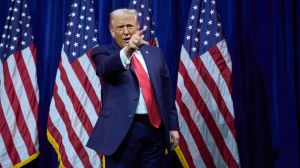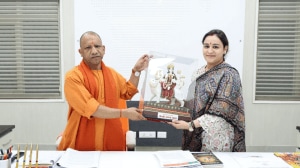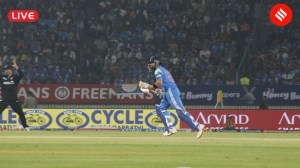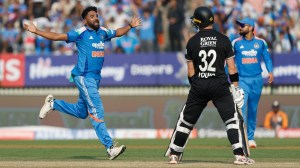An incomplete tryst with democracy
Whenever Pakistan lapses into its moments of martial law and repression, as happened with General Pervez Musharraf8217;s emergency last week...

Whenever Pakistan lapses into its moments of martial law and repression, as happened with General Pervez Musharraf8217;s emergency last week, a smug, superior look appears on the face of India. Whether it8217;s Indian politicians, businessmen, hacks or housewives, you hear self-congratulatory talk of our democracy and their hopelessness. Poor things, we say disdainfully, they really have not managed very well, have they? How sad for them that they made the mistake of abandoning India to create the violent little country that Pakistan has become. Some of this is true, but we need to hold the gloating and take a hard look at our democracy and see it for what it really is.
At about the time that General Musharraf was conducting his puzzling coup against himself, I happened to be on a flight from Mumbai to Delhi with a politician seated beside me. Typically, he was the last man to board and had a flunkey with him who carried his bag while Netaji talked endlessly on an expensive cellphone. When his conversation continued after the doors were closed and the plane began to taxi I, a nervous flier at the best of times, asked him to stop and reminded him that it interfered with the aircraft8217;s communications system. He ignored me so I tapped him on the shoulder and told him firmly that he must turn his phone off now. This annoyed him because, like most other Indian politicians, he seemed accustomed to rules not applying to him.
This gentleman was a perfect caricature of an Indian politician. He wore khadi but on his wrist was a platinum and diamond Patek Phillipe watch and on his feet expensive Italian loafers. Public service in India is such a profitable enterprise today that criminals abandon careers in crime for politics and billionaires abandon their businesses for a seat in Parliament. A clever politician can make more in a single term in the Lok Sabha than most Indian businessmen make in a lifetime. The result is that the worst Indians go into politics and once they get a toehold, they make sure that their constituency becomes something they pass on to their family. Hereditary democracy was once the leitmotif of the Congress party but today it is hard to find a major politician who has not brought a son, daughter, wife or mistress into what only the deluded still call public life.
This is only one of the flaws of our democracy. The more important one is that our idea of it is limited to the right to vote. Vital though this is, we need to pay attention to the ugly reality that those districts of India which the Naxalites have taken over are usually districts in which exist desperate poverty for the lower castes and unchallenged power and privilege for the upper castes. The situation is so ugly that the thousands of crores that we spend on anti-poverty schemes annually are appropriated by upper caste villagers, often with the collusion of upper caste officials. Only those of low caste who honour and accept their lowly status can share in the spoils. I have been to villages in Bihar in which dalit families are forced to put their thumb impressions on BPL below poverty line cards and housing loans that are then snatched from them by upper caste thugs. It is an ugly, dangerous situation and 60 years of democracy have made no difference.
There has been no difference either to the equally ugly reality that we remain a country in which there are civil privileges rather than civil rights because democracy has failed to empower the electorate by providing mass education. It has failed also to provide the average Indian with the fundamental requirements of the 21st century, like clean water, electricity, and reliable public healthcare. It is shameful that the main demands of voters in villages across India at election time continue to be bijli, sadak, pani.
So, although we should be proud of what Zulfikar Ali Bhutto once called the 8220;noise and chaos8221; of our democracy, we need to acknowledge that we have little to be smug about. We need to accept that the quality of the people we elect to public office has deteriorated so much in recent times that Parliament has become the most powerful club in India instead of being a place where laws are made.
This will only change when we accept that those who stand for public office must have certain minimum qualifications and certain minimum disqualifications. Can we begin by insisting on basic high school education for those who contest elections and instant disqualification for those who have criminal records. It may not seem like much, but it could be the beginning of higher standards in public life.
- 01
- 02
- 03
- 04
- 05































